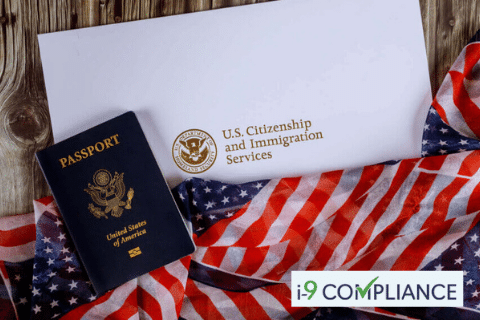DHS Has Extended Flexibilities for Immigration Processes, But Uncertainty Lies Ahead

Starting in March 2020, the U.S. Department of Homeland Security (DHS), along with the Immigration and Customs Enforcement (ICE) and the U.S. Citizenship and Immigration Services (USCIS), extended several flexibilities that affect business immigration processes as a way of dealing with the COVID-19 pandemic.
Many businesses and people have appreciated these policy changes, but the temporary nature of these accommodations has also caused some confusion. It has been especially confusing for businesses that have become fully remote or have a hybrid work environment. These businesses are not sure if this flexibility will continue after the pandemic ends.
Flexibility in I-9 Compliance
The USCIS and ICE announced on December 15th, 2021, that they were extending the flexibility as related to in-person compliance with Form I-9 requirements. This flexibility defers the physical presence requirement that is part of complying with the Employment Eligibility Verification or Form I-9 as well as section 274A of the Immigration and Nationality Act for those employers who have their entire workforce working remotely. This flexibility also applies to employees hired on or after April 1, 2021, If these employees only work in a remote setting as a result of COVID-19 precautions.
For employers that qualify for this flexibility, it is not required that they examine their employees’ identity and employment authorization documents in person. Instead, these employers have the option of inspecting the documents remotely through email, a video link, or fax, as well as other similar methods. However, employers do have to comply with re-verification and document retention requirements.
At this point, flexibility has been extended until April 30, 2022. The extension came soon after the DHS received a letter from some stakeholders requesting that the agency extend the flexibility for a minimum of six months. The letter stated that the last-minute way in which the agency tended to extend these flexibilities made it difficult for businesses to plan ahead to stay in compliance with COVID-related precautions. It also causes difficulties for employers who plan to continue with remote or hybrid work environments after the pandemic ends. The DHS recently gathered public input on alternatives to the physical inspection of documents for identity and employment verification purposes that would offer sufficient security. However, they have not made any permanent changes yet.
Flexibility in Original Signature Requirements
The USCIS originally started accepting electronically reproduced signatures instead of a “wet” signature, even on documents that previously required “wet” signatures as of March 20th, 2020. The agency stated that this flexibility would continue to be allowed as long as the National Emergency in effect for COVID-19 remained in effect. This National Emergency has been extended by the current administration until February 24th, 2022. This could be extended further, and it remains to be seen if the USCIS will again require “wet” signatures when the National Emergency ends. If this does happen, fully remote businesses could have considerable difficulty operating.
Flexibility When Responding To Agency Requests
The USCIS announced another extension of flexibilities for responding to agency requests at the end of December. This includes responses to Requests for Additional Evidence and Notices of Intent to Deny. This policy means that so long as the USCIS receives responses to certain requests and notices within 60 calendar days of the given due date, they will be treated as filed promptly. However, this policy expires on March 26th, 2022, and as of now, there is little indication of the future of this rule past its expiration. The USCIS may make this permanent, but that would require the permanent rule-making process; however, reverting to deadlines would place considerable strain on stakeholders.
Increase your hiring and verification efficiency today with I-9 Compliance automation.